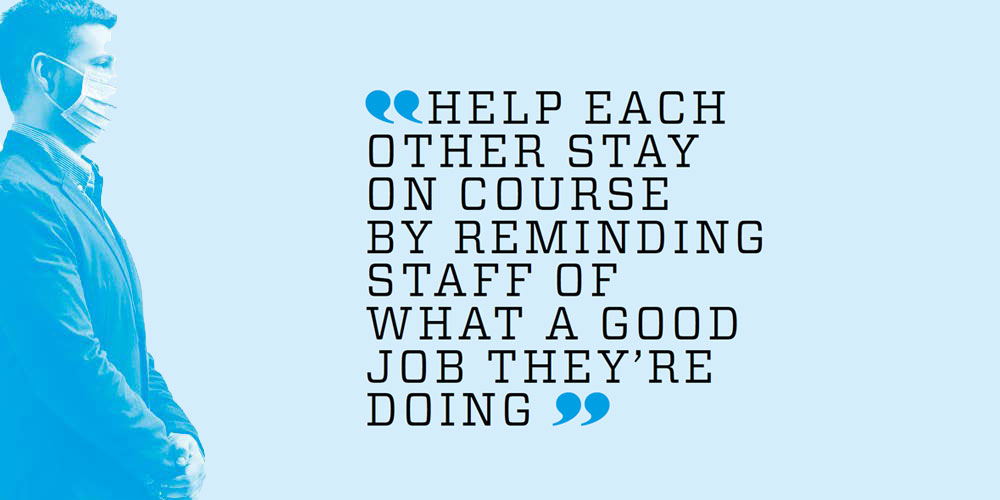Employers’ duty of care

Keep compliant during the crisis
Employers have a duty of care to their employees and play a general role in taking reasonable care that the health, safety and wellbeing of workers and others are not relaxed due to the current crisis. Putting in place support mechanisms and creating a culture where employees feel able to share challenges with their mental health should enable you to identify the risks and then devise strategies to manage them.
There’s lots of talk of physical fears in relation to the coronavirus, but senior managers may also feel vulnerable in demonstrating leadership in unusual circumstances. Help each other stay on course by reminding your staff of what a good a job they’re doing.
This may also be a particularly difficult time for people with pre-existing or past mental health problems and this may lead people to disclose mental health problems they have previously not discussed at work. Treat new disclosures with respect and compassion and make adjustments.
The Health and Safety at Work Act 1992 requires employers to assess work-related mental health issues to measure the levels of risk to staff. Many things can cause work-related stress. It may stem from over-working, inadequate training, harassment or job insecurity, all of which may be accentuated during this crisis.
Your responsibilities include:
- Providing health & safety training
- Protecting staff from discrimination
- Managing and addressing staff misconduct
- Managing and addressing grievances promptly and effectively
- Providing adequate equipment required to complete any tasks
Employees also have a part to play in ensuring their own health and safety:
- Following training provided for using equipment or devices at work
- Taking reasonable care of their own and other’s health and safety
- Reporting hazards, near misses or inadequate precautions in the workplace
- Co-operating with you on matters of health and safety
The current climate may lead to higher incidences of work-related stress or depression, which can manifest itself in different ways:
- A decline in productivity
- Increased sick leave
- Drop in punctuality
- Isolation from colleagues
In extreme cases, stress or depression could make an employee disabled for the purposes of the Equality Act. It’s part of an employer’s roles and responsibilities to make reasonable adjustments around the office which place a disabled employee on an equal footing with non-disabled employees. Ignoring requests for reasonable adjustments opens you up for disability discrimination claims.
Examples of reasonable adjustment for employees with stress or depression include changes to:
- Working patterns (offer flexible working, paid leave, etc.)
- Environment (partitions, quiet area, workstation move, etc.)
- Workload (reduced workload, increased supervision, etc.)
It’s worth noting the employer’s responsibility for health and safety extends to anyone in their building – including clients and contractors.
Tags: Business, compliance, employees, employers, health, safety, staff, training
1 Comment